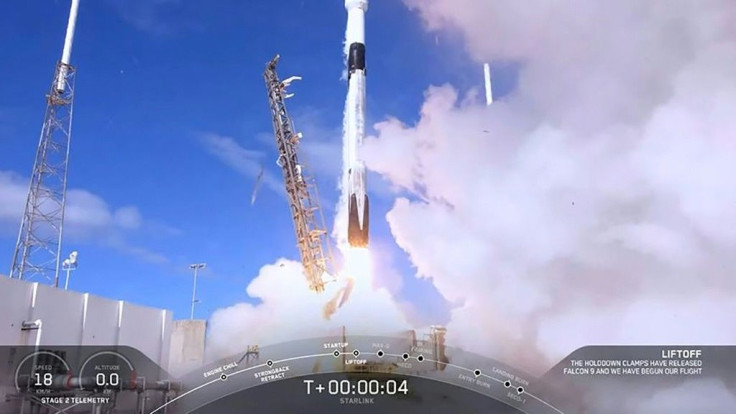SpaceX ISS Delivery 2019: 'Mighty Mice,' Worms And Empathetic Robot

The SpaceX resupply mission to the International Space Station (ISS) has successfully completed its objective. The Falcon 9 rocket sent to the space station had unusual cargo onboard – it dropped off muscular-looking “mighty mice,” pest-killing worms and a smart, empathetic robot on Sunday.
The spaceship reached the ISS three days after its launch from Cape Canaveral, Florida. The ISS used a large robot arm onto the rocket, codenamed “Dragon.”
"Whenever we welcome a new vehicle on board, we take on board also a little bit of the soul of everybody that contributed to the project, so welcome on board," Station Commander Luca Parmitano told Mission Control Sunday.
The spaceship reached carrying around 3 tons of supplies, which included genetically-engineered mice with twice the muscle mass of regular mice. These “mighty mice” as they are called, will be used in a muscle and bone experiment, on-board the ISS.
The mice have been designed by researchers at the Jackson Laboratory for Genomic Medicine (JAX-GM).
"This is a project that I've been trying to get off the ground, so to speak, for many, many years. To see it all come together now is nothing short of amazing," lead researcher Se-Jin Lee, said in a press release.
It also carried 120,000 roundworms, a beneficial kind of worm whose abilities to kill pests will be a part of an agricultural study.
The most interesting cargo is a large, round robot head with an artificial intelligence named Cimon. It will work as an astronaut’s helper. The spaceship has also delivered a high-resolution imager, designed by Japan Aerospace Exploration Agency. A brewing firm has also sent its product samples to ISS to test how barley behaves in space.
NASA has also sent special Christmas presents for the ISS’ six-person crew.
Another spaceship is also set to reach the ISS Monday, but this one will be launched by Russia from Kazakhstan.
© Copyright IBTimes 2024. All rights reserved.





















